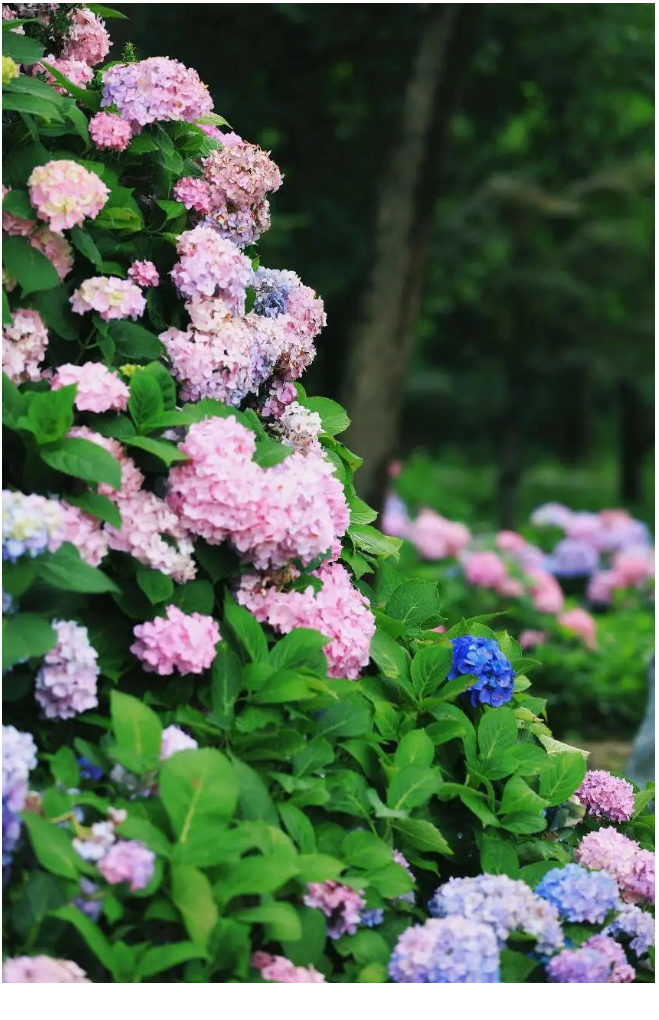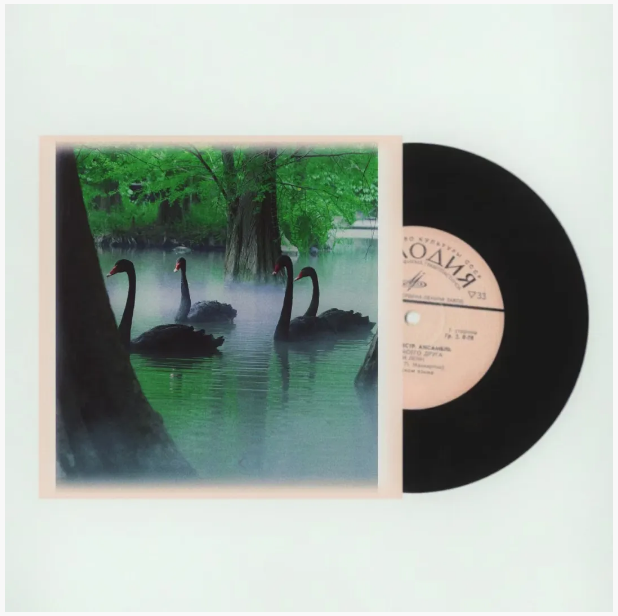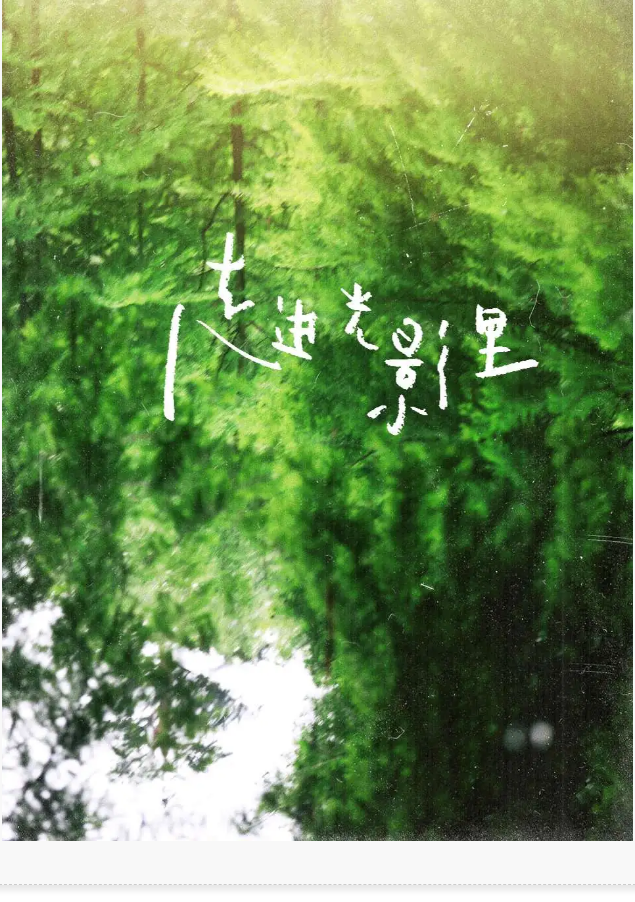



Monet’s Garden
The former residence of Impressionist master Claude Monet—Monet’s Garden—is located in the town of Giverny, about 70 kilometers west of Paris, France. Monet lived there for nearly 40 years, during which he created a vast number of garden-themed paintings, the most famous being his Water Lilies series. The garden is divided into two parts: a water garden filled with aquatic plants like water lilies, irises, and reeds; and a flower garden called Clos Normand, where tulips, roses, and a variety of seasonal blooms flourish.
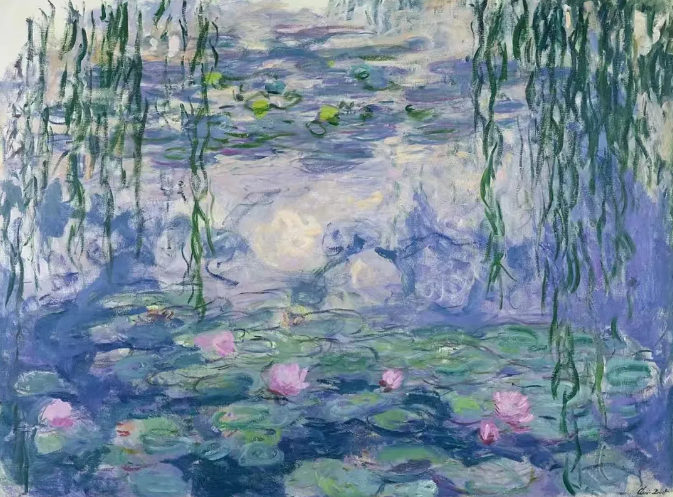
【《睡莲》作者:莫奈 来源网络】
印象派大师克劳德·莫奈的故居——莫奈花园位于法国巴黎以西70公里的吉维尼小镇,莫奈在这里居住了近40年,创作了以花园为主的大量绘画作品,其中最著名的就是《睡莲》系列。莫奈花园分为水园和花园,水园种植着睡莲、菖蒲、鸢尾等水生植物,花园则种植着郁金香、玫瑰等四季花卉。
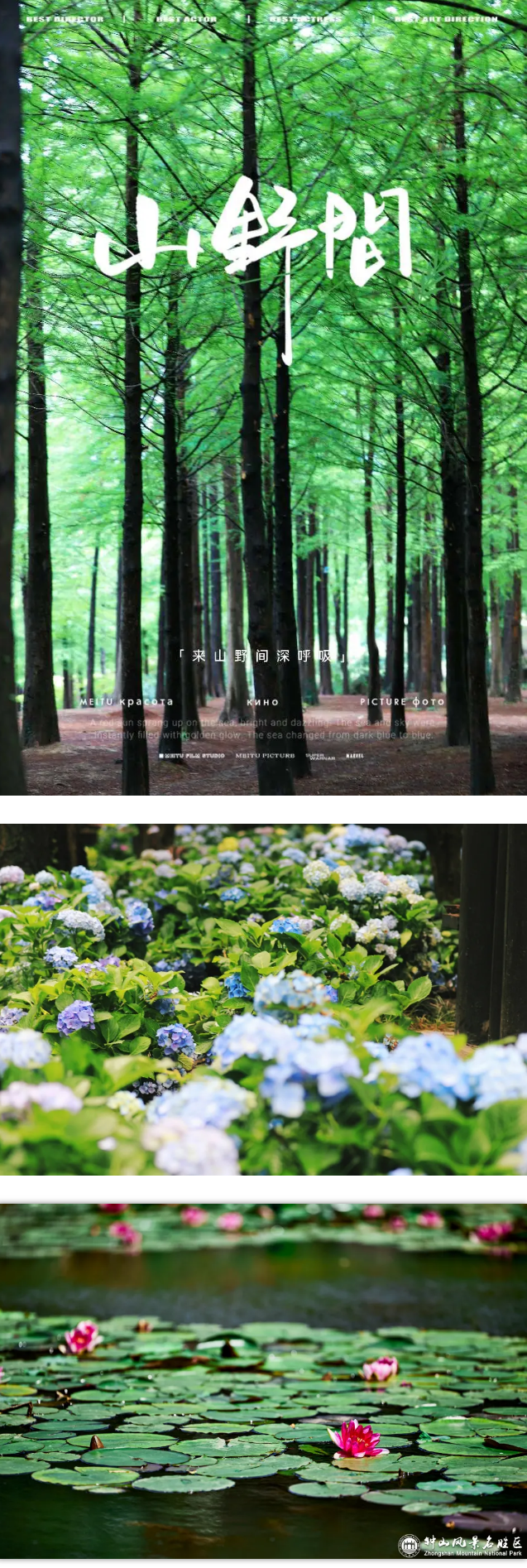
It’s hard to imagine a place more beautiful than Monet’s Garden—but halfway across the world, in Nanjing, China, there’s a spot that has earned the nickname “China’s Monet Garden” from travelers: Yanque Lake, nestled within the imperial Xiaoling Mausoleum, a UNESCO World Heritage Site. In summer, when the water lilies are in full bloom, the bald cypress trees ring the lake in fresh green, hydrangea flowers known as “Endless Summer” dot the shore, swans glide gracefully on the water, and deer roam freely nearby. It feels like stepping into “A Midsummer Night’s Dream.” Yanque Lake blends the tranquil charm of a traditional Chinese lakeside scene with the romantic flair of a French Impressionist painting.
你能想象莫奈花园有多美吗?而远在中国南京,也有一座被旅行者们誉为“莫奈花园”的地方,这就是地处世界文化遗产明孝陵的燕雀湖。当夏季睡莲盛开,新绿的落羽杉环绕,绣球花“无尽夏”点缀岸边,天鹅优雅地游弋、小鹿自由地奔跑,眼前一切有如仲夏夜之梦,一年四季这里既有中式湖畔的风光韵味,也好似一幅法式浪漫的印象派画作。
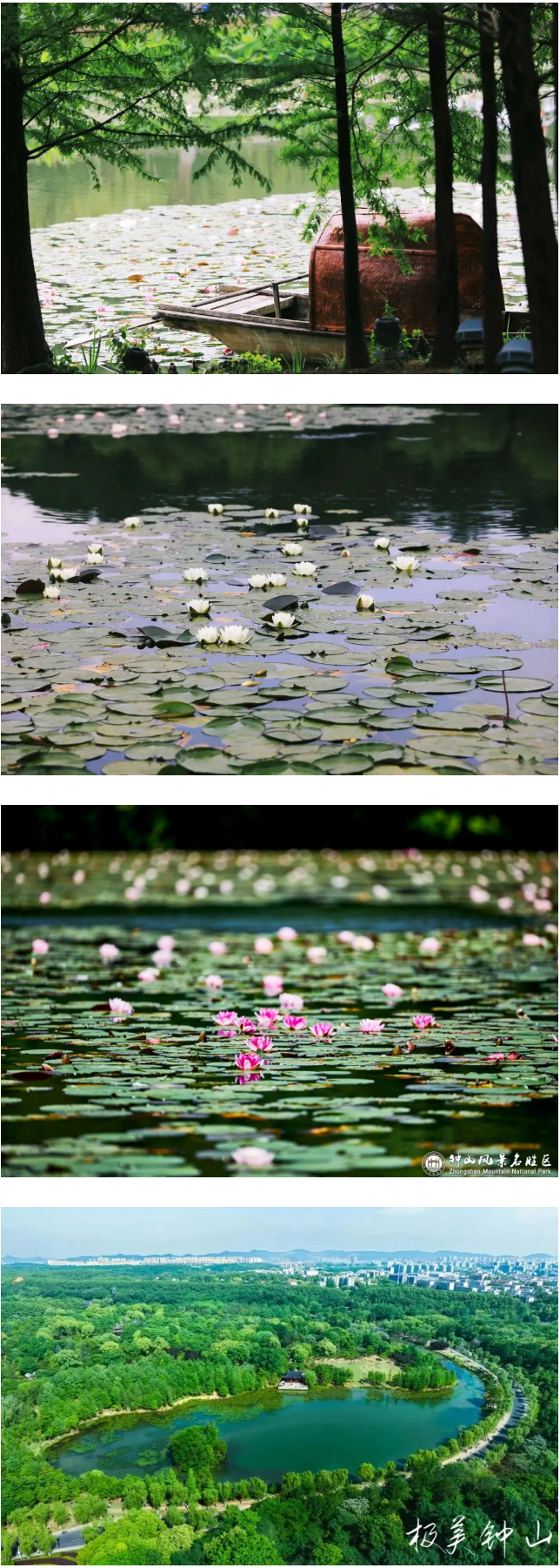
An ancient Chinese poem once described such beauty: “A light boat drifts into a lotus-filled dream.” Though originally written about West Lake in Hangzhou, the line is now often quoted by internet users to describe Yanque Lake when the lilies bloom. It reflects the deep connection between Chinese landscapes and poetry that has existed for centuries. The graceful verse brings to life the charm of Nanjing’s Zhongshan Mountain. In this moment, standing by the lake and softly reciting the poem, landscape and poetry come together in perfect harmony—unfolding a timeless expression of Eastern aesthetics before your eyes.
“小楫轻舟,梦入芙蓉浦”。这是中国古代诗人形容绝美湖面风光的诗句,中国山水自古与诗歌有着紧密的联系,这句诗虽然是写杭州西湖的,而在睡莲盛开的季节,也经常被网友来形容南京燕雀湖,优美的诗句让南京钟山的江南底蕴跃然纸上。此刻,如果在湖边,轻吟出此诗句,山水与诗词彼此成就,眼前流淌出永恒的东方美学。
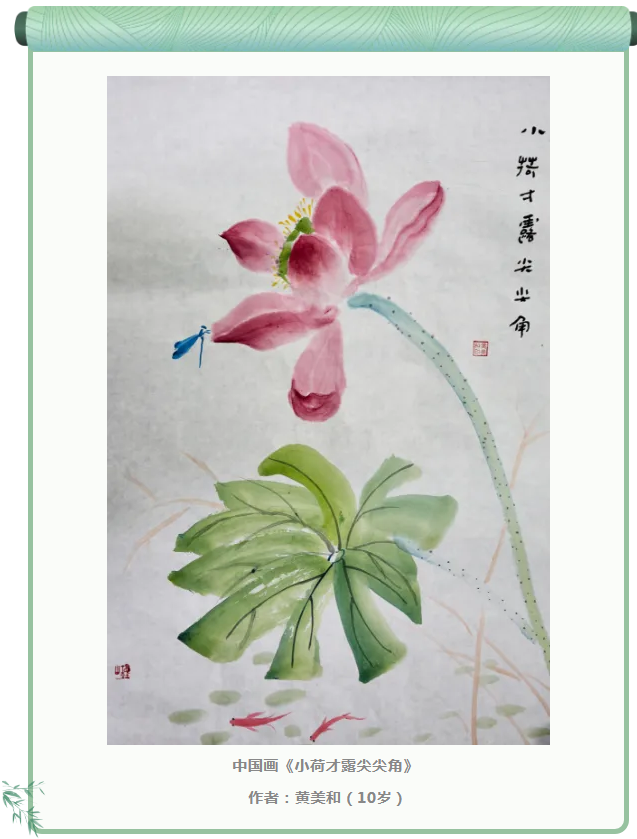

Yanque Lake isn’t just picturesque—it’s steeped in history. According to legend, the lake is tied to Xiao Tong, eldest son of Emperor Wu of the Liang dynasty more than 1,500 years ago. A pavilion called Taixiang Zhaoming was built there to honor his scholarly legacy. Over time, the people of Nanjing—known for their love of beauty—transformed Yanque Lake, giving it new meaning and aesthetic appeal. Today, more and more visitors come to find a sense of ease and serenity. This year, the “Endless Summer” hydrangea flowers bloomed early, marking the start of a romantic season.
燕雀湖不仅自然风光优美,还蕴含着丰富的历史文化内涵。相传,它与1500多年前南北朝梁武帝长子萧统有关,这里筑有纪念这位太子的读书处——台想昭明。岁月悠悠,“爱美”的南京人改变了燕雀湖的模样,也赋予了它新的美学意义,越来越多的旅行者喜欢来这里寻找“松弛感”。今年,这片宝藏之地的绣球花“无尽夏”早早绽放,为夏日拉开了一场浪漫的序幕。

In the enchanting days of May, stroll along the lakeside path and you’ll see the majestic Zhongshan Mountain rising in the distance, setting the scene like a painting. Closer to the water, lush hydrangea flowers bloom in brilliant hues, like nature’s own palette come to life. Thoughtfully arranged by expert gardeners, the flowers layer and cascade into a sea of color, blending beautifully with the shimmering lake and the tall, elegant cypress trees. At times, a gentle mist drifts through the woods, and floating flower beds crafted from blooms drift lazily across the surface with the summer breeze—every moment feels like a glimpse into a fairytale.
迷人的五月,沿着湖边小径漫步,远处,紫金山连绵起伏,为这幅画卷勾勒出壮阔的背景。湖畔大片的绣球花“无尽夏”娇柔绽放,仿佛是大自然打翻了最绮丽的调色盘。经过园艺师的匠心打造,花儿相互交织,高低错落,连绵起伏成一片绚丽花海,与波光粼粼的湖面、挺拔葱郁的落羽杉林相映成趣。林间,不时的飘来一阵水雾,园艺师将可爱的小花制作成漂浮的花坛,夏风吹来,花坛随波飘荡,每一眼都是人间仙境般的绝美景致。

Yanque Lake is also a sanctuary for wildlife. The crystal-clear water mirrors the sky and blossoms above. Swans—white and black—glide through the lake, leaving ripples that briefly scatter their reflections before calm returns, like a trick of light and shadow. The surrounding forest holds its own quiet life.
燕雀湖也是动物的栖息家园。近处,湖水清澈见底,倒映着花影与天光,偶尔有白天鹅、黑天鹅优雅游过,泛起层层涟漪,打碎了水中的梦幻倒影,又迅速恢复如初,宛如一场奇妙的光影魔术。

It’s said that during the Ming Dynasty (1368-1644), the first emperor Zhu Yuanzhang kept a thousand deer there during the construction of the imperial Xiaoling Mausoleum, each wearing a tag inscribed “Longevity Deer” or “Silver Medal Deer.” Historical records even note that Emperor Kangxi (1662-1722) saw deer still roaming these woods during his visits. Today, a “Longevity Deer Park” near Yanque Lake preserves that legacy. As the lake glimmers and deer graze nearby, time seems to slow. There is no noise, no rush—just the soft sounds of nature and the occasional gentle call of deer, as if you’ve wandered into an enchanted forest.
静谧的林间也藏着一种灵动,相传明太祖朱元璋在建造明孝陵时,在园内养鹿千头,鹿的脖子上挂着“长生鹿”或“银牌鹿”。据史料记载,康熙皇帝前来谒陵时,仍有鹿穿梭于钟山林间。如今,燕雀湖旁有一处“长生鹿苑”,远处燕雀湖波光粼粼,近处小鹿相伴左右,时光在此刻慢了下来。在这里,没有城市喧嚣,只有人与自然和“呦呦鹿鸣”,仿佛闯入梦幻的“绿野仙踪”。
